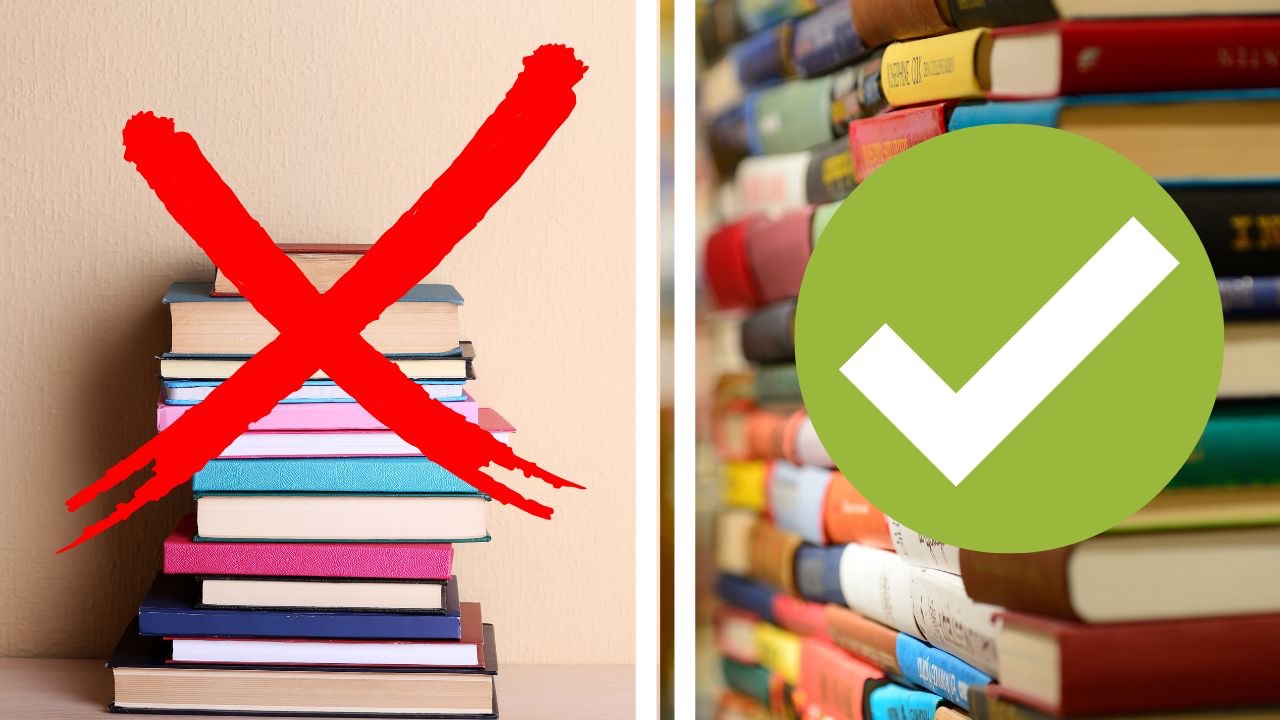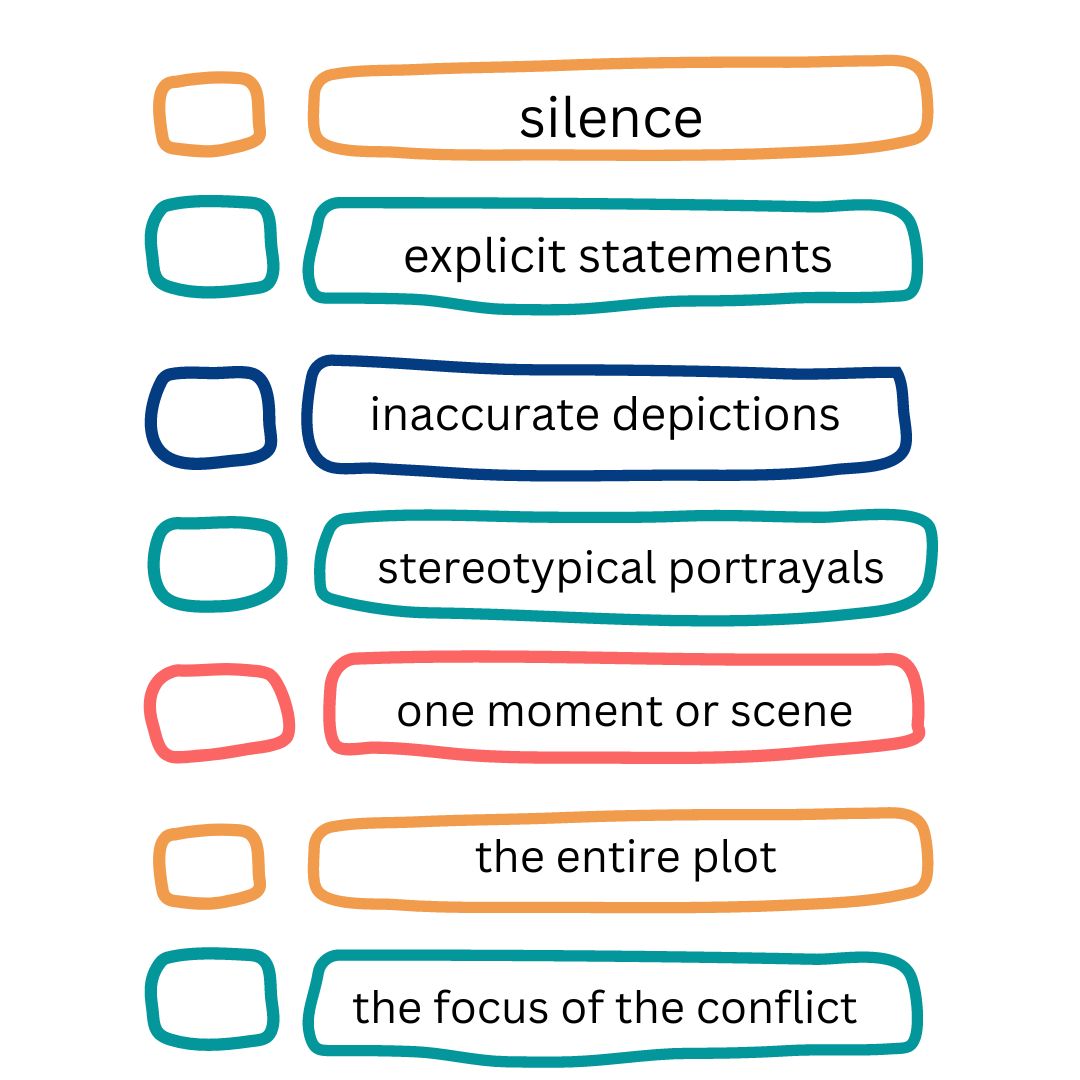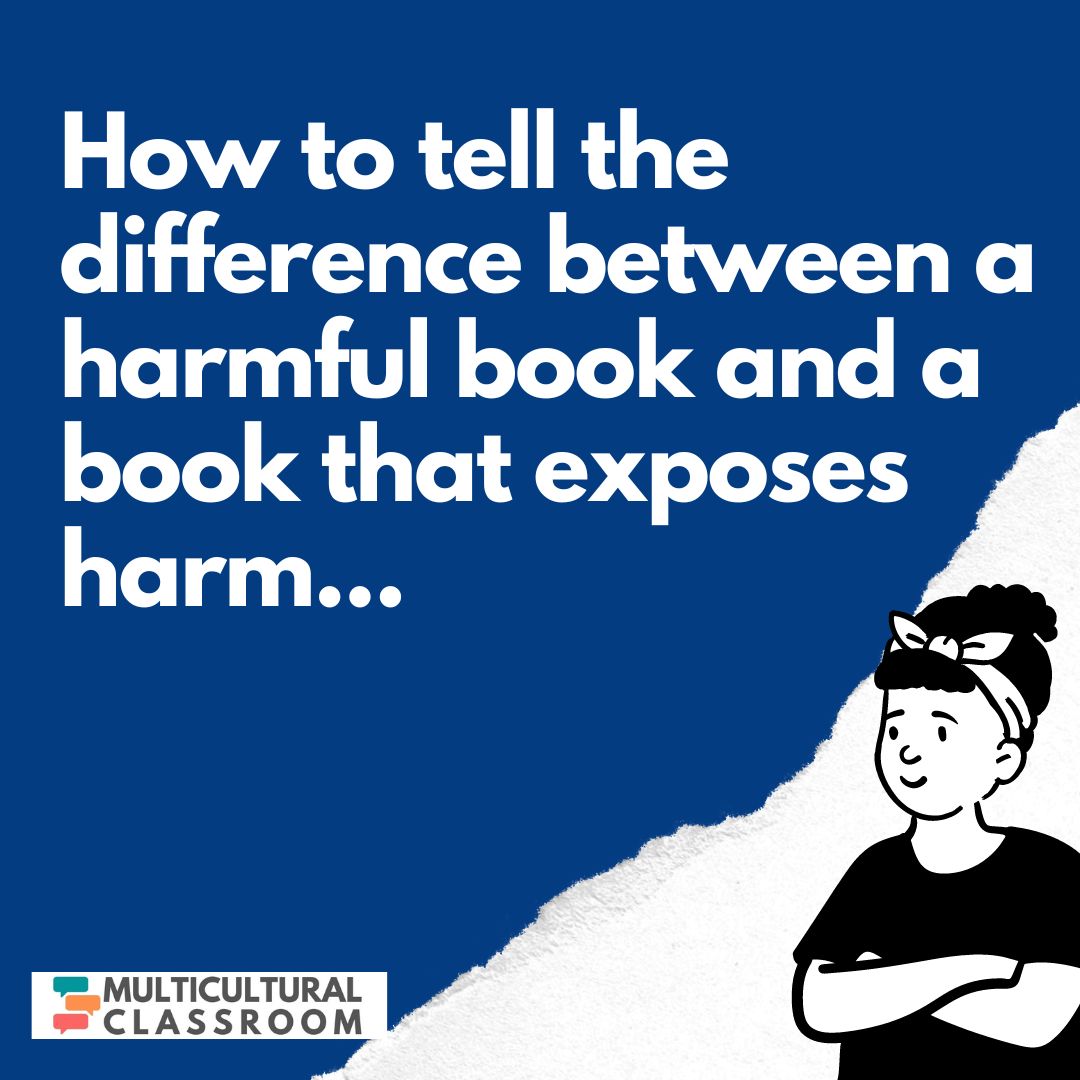
Harmful Books vs. Harm-Exposing Books
May 17, 2023I guess that the nuance in knowing the difference between a book that exposes harm and one that is harmful isn't as clear for everyone as it may be for me. Let me change that.
There are books that cause harm. Harm, in this case, refers to offense or insult. These are books that lead the reader to feel negative feelings whether about themselves or about others. This is a problem because it pushes a dehumanizing ideology and plays a role in sustaining bias and discrimination in our society. A book that leads a person to hate or dislike a group of people based on a cultural or ethnic stereotype is a racist book. It has power and is doing damaging work. The presence of these ideas can exist in a book in various ways:

Silence refers to ignoring the presence of race and bias completely as if to communicate it doesn't exist, which only means that whiteness is the default/standard. This silence is found in many 'classics.' Explicit statements refers to moments of outright racist remarks that go unchecked and are accepted by the author. Similarly, inaccurate depictions show characters through a historically or factually incorrect way. This often happens with Indigenous characters. Stereotypical portrayals are a little different because while there may be a historical or social context to the depiction, we know stereotypes are harmful and are in and of themselves problematic. There is no such thing as a good stereotype. The main problem with these 3 is that they are not about demonstrating something wrong. In a harmful book, these go unnoticed and reveal the author's bias. These moments of harm can happen in one scene or they can endure throughout the entire plot of the story. Lastly, the conflict of the book might even include this issue, but isn't dealt with properly and allows for further harmful ideas to be perceived as the solution (ie: white saviorism in To Kill a Mockingbird).
Then, there are books that expose harm. These are texts that seek to create an awareness in the reader about the issue they're discussing. These books lead the reader to feel a stir of humanity within them and are often a call to action of some sort. In these books you are moved, you're made upset, and you gasp at the moment of harm in the story because the author wants you to. They are using this book as a vehicle to create awareness. It may include explicit moments. The book might even feature harsh language. Isn't that real life, though? These books move you to tears and action. These are the books we want in schools; the ones we want in the hands of students whose characters are still developing. Yet these are the books that are being challenged and banned primarily by white people in power or using their access to power. It is no coincidence.
In a recent Instagram post (click on the image), we shared a mini thread on how this works, but also pointed to popular texts that exemplified these differences. We did this because it's good to know, but also in the context of the book banning we're in, it is critical to know how to talk back and how to defend books. At this point, books are guilty until proven innocent, even if that goes against the (supposed) core value of this nation's justice system. We've known the standards of justice change for those of us from marginalized identities, as are the majority of the authors of banned books.
Now that you (hopefully) understand this nuance a bit more, please stand up and defend these books. Stand against the banning of books, which is a way to silence voices and narratives that must be heard. Stand for truth and love.
Check out The Anti Racist Teacher Course on our website to dig deeper into teaching in anti racist ways and dismantling our racist imagination through books.
You're not alone in this fight.
Don't miss a beat!
Get our blog delivered to your email whenever we post!
We hate SPAM. We will never sell your information, for any reason.


